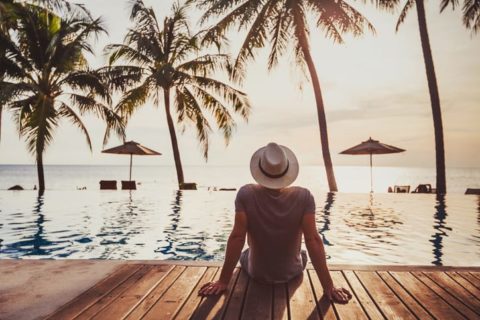Pool Safety During COVID-19
COVID-19 has made us all more aware of safety precautions. From social distancing to wearing a mask, we’re all doing a little bit more than usual to keep ourselves and those around us safe. But are there changes to pool safety during COVID-19?
The answer is multi-faceted. First, as camps and other activities have closed, kids are spending more time in their families’ pools. That makes it more important than ever for parents to prioritize pool safety at home. Drowning is the leading cause of death for children for death between the ages of 1 and 4, but there are some very effective practices to keep children safe around water.
- Never let your guard down. Every body of water presents a hazard, and drowning can happen quickly and silently.
- Always supervise children closely. Consider the 3 C’s of pool supervision: Constant, Close, and Capable. Children should be constantly watched by a capable adult who is close enough to intervene in an emergency. In other words, within arm’s length of a baby or toddler, and next to the pool for an older child.
- Prepare your self and your children. Kids should have swimming lessons as soon as possible, preferably starting around one year of age. Adults should be trained in CPR. Everyone should be clear on the pool rules to prevent accidents.
- Secure your pool. There are a number of measures you can take to make your pool safe, and a pool fence is mandatory. The fence should be at least four feet tall, with self-locking, self-closing gates, and it should surround the entire pool. Other safety equipment options to consider include pool nets, pool alarms, and pool covers.
- Don’t rely on floaties. Inflatable arm and waist floaties are not appropriate for drowning prevention and can give kids a false sense of security. Make sure to use U.S. Coast Guard approved life jackets instead.
The next factor of pool safety during COVID-19 is the virus itself. If you’re planning to spend time at a public pool this summer, is it safe? Experts say that it’s unlikely for the virus to be passed through pool water because coronaviruses are not waterborne. A higher concern is the density of people around the pool. It’s advisable to practice the same social distancing, hygiene, and mask-wearing protocols you’d maintain in any other public place.
If you’d rather spend the summer at your own pool than out in public, Millennium Pool Service can help. With over 30 combined years of experience in the pool industry, we provide a comprehensive range of services for both residential and commercial customers in Virginia, Washington DC, and Maryland. When you hire Millennium Pool Service, you get a well-qualified, industry-trained staff, services that are tailored to your needs, and a commitment to 100% customer satisfaction. In Virginia, call 703. 939. 5062, in Maryland, call 301. 591. 3750, or you can contact us through our website.

